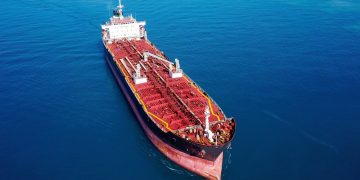In response to the growing threats in the Red Sea, Carnival has decided to reroute 12 ships originally scheduled to transit the Red Sea until May 2024. Meanwhile, Chevron has also announced that they will be using the Cape of Good Hope as the alternative route to transport CPC Blend oil cargoes.
More and more companies are rerouting their ships to prevent assaults on their vessels and crews. Alas, rerouting might extend the Asia–Europe journey by 8–15 days, and add an additional 3,000–3,500 nautical miles (6,000km) to the existing route, which is bad news both for costs and emissions.
As Reuters reports, Carnival and Chevron’s decision aligns with a broader trend in the industry. The rerouting by Carnival is expected to have an impact of 7 cents to 8 cents on its adjusted earnings per share for full-year 2024, with the majority of the impact coming in the second quarter, Reuters informs.
Additionally, as mentioned, Chevron is opting for the longer route around Africa’s Cape of Good Hope instead of the more direct route through the Red Sea. While this decision ensures safety, it also adds significant time and cost to the voyages, Reuters notes.
According to Reuters, the Red Sea attacks have led to a noticeable reduction in CPC (Caspian Pipeline Consortium) Blend supplies to Asia, dropping from 1.2 million tons in December to 550,000 metric tons in January.


































































